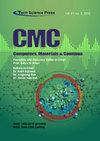PSO Based Multi-Objective Approach for Controlling PID Controller
IF 1.7
4区 计算机科学
Q3 COMPUTER SCIENCE, INFORMATION SYSTEMS
引用次数: 5
Abstract
: CSTR (Continuous stirred tank reactor) is employed in process control and chemical industries to improve response characteristics and system efficiency. It has a highly nonlinear characteristic that includes complexities in its control and design. Dynamic performance is compassionate to change in system parameters which need more effort for planning a significant controller for CSTR. The reactor temperature changes in either direction from the defined reference value. It is important to note that the intensity of chemical actions inside the CSTR is dependent on the various levels of temperature, and deviation from reference values may cause degradation of biomass quality. Design and implementation of an appropriate adaptive controller for such a nonlinear system are essential. In this paper, a conventional Proportional Integral Derivative (PID) controller is designed. The conventional techniques to deal with constraints suffer severe limitations like it has fixed controller parameters. Hence, A novel method is applied for computing the PID controller parameters using a swarm algorithm that overcomes the conventional controller’s limitation. In the proposed technique, PID parameters are tuned by Particle Swarm Optimization (PSO). It is not easy to choose the suitable objective function to design a PID controller using PSO to get an optimal response. In this article, a multi-objective function is proposed for PSO based controller design of CSTR.基于粒子群算法的PID控制器多目标控制方法
连续搅拌槽式反应器(CSTR)用于过程控制和化学工业,以提高响应特性和系统效率。它具有高度非线性的特性,包括其控制和设计的复杂性。动态性能随系统参数的变化而变化,这需要更多的努力来规划CSTR的重要控制器。反应器温度从定义的参考值向任何方向变化。值得注意的是,CSTR内化学作用的强度取决于不同的温度水平,偏离参考值可能导致生物质质量的退化。为这样的非线性系统设计和实现一个合适的自适应控制器是必要的。本文设计了一种传统的比例积分导数(PID)控制器。传统的约束处理方法由于控制器参数固定,存在严重的局限性。因此,本文提出了一种利用群算法计算PID控制器参数的新方法,克服了传统控制器的局限性。该方法采用粒子群算法对PID参数进行自整定。利用粒子群算法设计PID控制器时,要选择合适的目标函数以获得最优响应是一件不容易的事情。本文提出了一种基于粒子群算法的多目标函数CSTR控制器设计方法。
本文章由计算机程序翻译,如有差异,请以英文原文为准。
求助全文
约1分钟内获得全文
求助全文
来源期刊

Cmc-computers Materials & Continua
工程技术-材料科学:综合
CiteScore
5.30
自引率
19.40%
发文量
345
审稿时长
1 months
期刊介绍:
This journal publishes original research papers in the areas of computer networks, artificial intelligence, big data management, software engineering, multimedia, cyber security, internet of things, materials genome, integrated materials science, data analysis, modeling, and engineering of designing and manufacturing of modern functional and multifunctional materials.
Novel high performance computing methods, big data analysis, and artificial intelligence that advance material technologies are especially welcome.
 求助内容:
求助内容: 应助结果提醒方式:
应助结果提醒方式:


